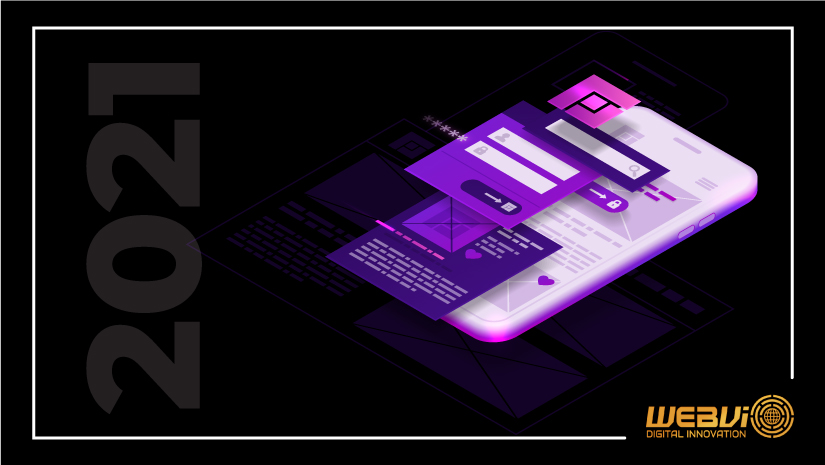
2021 Best Mobile Application Development Frameworks
Thinking of booking a cab? You have apps. Wanting to connect to a friend? You have multiple apps. Have to book a doctor’s appointment? You have many. Have to pay bills? There is an app again. Be it for booking tickets for movies, restaurants, hotels, flights or connecting with people around or be it for money transferring, mobile apps have become an integral part of our lives. Needless to say, our lives are made easier and way smother. But building mobile applications requires a framework that helps a developer from the tedious job of rebuilding any mobile application from the scratch.
Mobile app developers are now focusing on developing cross-platform applications that will be suitable over other applications. The cross-platform app development develops on a single app that can be operated on diverse mobile platforms. It reduces the developing time while optimizing the development expenses and supplies.
There are multiple mobile application frameworks available but choosing the correct one that suits your business module is absolutely crucial. Here’s listing the best mobile application frameworks for 2021 to develop a robust mobile app that is not only functionally but user-friendly.
o React Native: This is a cross-platform mobile app development framework launch by Facebook in 2012 and currently the topmost JavaScript frameworks in the IT industry. This open-source framework allows you to develop mobile applications for both Android and iOS platforms while its cross-platform feature uses single code for Android and iOS applications. Conjoining React and JavaScript, React Native aims to develop mobile applications in the native style over the hybrid application.
USP’s:
Cost-Effective Solution & User-friendly
Code Re-usability & Easy Maintenance
Third-party plugins compatibility
Live & Hot Reloading Support
Offers Simple User Interface
Modular Programming Architecture Availability
o Xamarin: One of the most popular open-source framework, Xamarin is a .Net application acquired by Microsoft. Xamarin allows you to develop application on Android, iOS and Windows platforms. It uses native UI elements to create user-friendly and rich experiences through its native applications.
USP’s:
Native User Experience & Easy Maintenance
Single Technology Stack to Code for All Platforms
Absolute Hardware Support
Open Source Technology with Strong Corporate Support
Complete Development Ecosystem
Technical Support by Microsoft
o Flutter: Developed my Google, Flutter is a cross-platform UI toolkit used to build native applications across multiple platforms; mobile, desktop and web platform. As a code based mobile app development framework, Flutter works on a single code that is compatible for both Android and iOS applications. Its ease of development teamed together with native performance and visible consistency, Flutter has a huge community of developers.
USP’s:
Same UI and Business Logic in All Platforms
Custom, Animated UI of Any Complexity Available
Reduced Code Development Time
Own Rendering Engine
Simple Platform-Specific Logic Implementation
Increased Time-to-Market Speed
o Ionic: Developed in 2013, Ionic is an open-source code HTML5 development framework that is used for building hybrid mobile applications. The mobile apps developed using Ionic frameworks are written using HTML, JavaScript, and CSS. Ionic offers innumerous preset UI components like action sheets, navigation menu, forms, filters and many other rich features. The framework primarily focuses on UI experience and the look and feel of the app. Its in-built command-line interface along with other features like Ionic Native and Cordova-Based App packages makes it interesting and worthy.
USP’s:
Highly Customizable UI
Complete Utilization of Cordova Plugins
Built on AngularJS
Enhanced Development
High-end Application Integration
Powerful CLI (Command-Line-Interface)
o JQuery Mobile: A cross-platform development framework, JQuery Mobile is used to build mobile and web applications for numerous devices. JQuery Mobile framework’s HTML5 Markup-driven configuration brings various smart plugins such as Content-Slider, Image Slider, Pop-Up Boxes, and various other plugins to make it a powerful API along with an extensive customizable library. Its robust theme framework comprises of 26 sets of toolbar, button colours and content type. JQuery framework is adaptable with other mobile application development frameworks like PhoneGap.
USP’s:
Simple and Easy-To Learn Framework
cross-platform and cross-device mobile applications
Powerful Custom theme development
Various Add-on Plugins
There are some other note-worthy mobile application development frameworks other than the mentioned one such as NativeScript, Framework 7, Appcelerator Titanium, Adobe Phone Gap among others that are preferred by developers community across the globe. As per your needs and business module, you get to choose the desired mobile application development framework.
